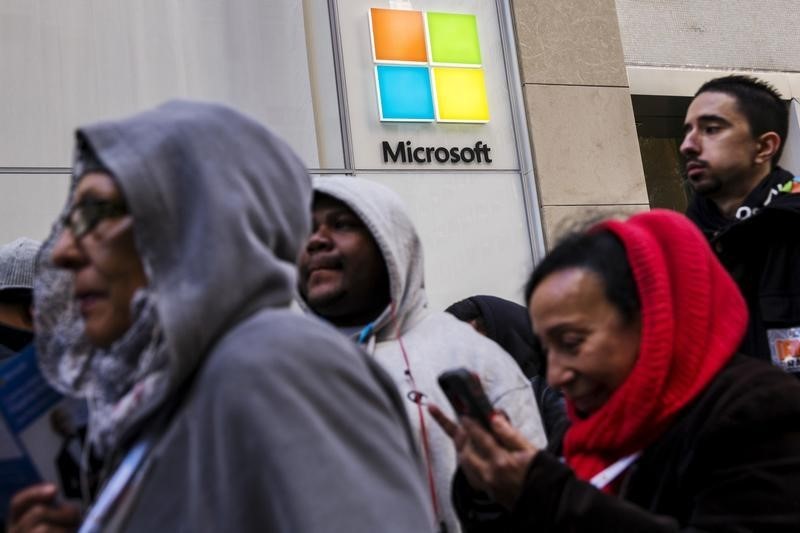Gold bars to be exempt from tariffs, White House clarifies
Investing.com -- The race to a $4 trillion market cap among Big Tech companies is underway, Wedbush analysts said in a Wednesday note. The investment firm believes this race will be “front and center” between Nvidia (NASDAQ:NVDA), Apple (NASDAQ:AAPL), and Microsoft (NASDAQ:MSFT), which will compete for the historic milestone in the next 6-9 months.
"The AI Revolution starts with Nvidia and in our view the AI party is just getting started as it's 9 pm/9:30 pm in a party going till 4 am with the rest of the tech world now joining with Apple also kicking off the consumer AI wave with iPhone 16,” analysts wrote in the note.
“It's all about the pace of data center AI-driven spending as the only game in town for GPUs to run generative AI applications all go through Nvidia."
Wedbush says Nvidia and Microsoft are the “first derivatives” of this AI wave, with a broader range of companies now also entering the space.
Citing recent visits to Asia and checks across the region, Wedbush analysts are even more confident in their AI Revolution demand thesis for the next 12 to 18 months. They see a massive opportunity in the AI infrastructure market, predicting it could expand tenfold by 2027.
The analysts estimate that around $1 trillion in AI-related capital expenditures will be deployed over the next three years, laying the foundation for this “next-generation AI foundation.”
Nvidia and Microsoft continue to be central drivers of the AI wave, but the analysts also highlight the increasing participation of other major tech companies. Oracle (NYSE:ORCL), ServiceNow (NYSE:NOW), Palantir (NYSE:PLTR), Salesforce (NYSE:CRM), Dell (NYSE:DELL), IBM (NYSE:IBM), Apple, and AMD (NASDAQ:AMD) are among those joining what they describe as the "AI Party."
"In a nutshell, we believe the stage is set for tech stocks to see another 20% move higher in 2025 with this tech bull market just hitting its next phase led by the AI Revolution," analysts said.
Wedbush expects Apple to lead a consumer AI revolution with the launch of the iPhone 16.
According to supply chain insights from Asia, this iPhone upgrade cycle could be “a historical one,” potentially sparking a supercycle.
Analysts estimate that roughly 300 million iPhones worldwide haven’t been upgraded in more than four years. They believe Apple could sell over 240 million iPhone units in fiscal year 2025 as this AI-powered upgrade cycle takes hold.
